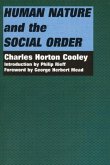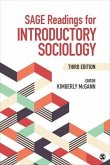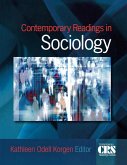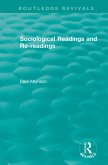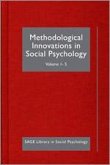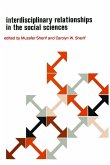Readings in Social Psychology: General, Classic, and Contemporary Selections is a collection of readings in social psychology that systematically exposes the reader to a variety of articles in social psychology accompanied by critical thinking and integrative questions.
Other books of readings in social psychology tend to use articles from just one type of publication (e.g., general readership articles such as those in Psychology Today) or they use articles from professional publications that have been edited and shortened by the book author. This book utilizes these general, classic, and contemporary sources of material to provide the reader with exposure to the scope and variety of information available in social psychology. Additionally, all articles are presented in their entirety; not one word has been changed. This detailed exposure of the reader to these full-length articles, especially the classic and contemporary sources, provides a level of understanding not found in abridged materials. Furthermore, understanding of the material and the possible connections of the articles to other topics and to the readers own lives is accomplished by the "Critical Thinking Questions" found with each article, and the "Chapter Integration Questions" help to promote critical thinking and bring together the articles in each chapter.
Product Description
Provides a breadth of exposure to information in the field
Readings in Social Psychology: General, Classic, and Contemporary Selections exposes readers to the scope and variety of information available in social psychology.
The collection of readings provides the reader with a range of articles in social psychology and is accompanied by critical thinking and integrative questions. It utilizes general, classic, and contemporary sources of material and presents full articles, unlike many comparable books. This detailed exposure of the reader to full-length articles, especially the classic and contemporary sources, provides a level of understanding not found in abridged materials. Students gain a greater understanding of the articles in each chapter with critical thinking and chapter integration questions that allow them to connect materials to other topics and to their own lives.
Teaching & Learning Experience
Personalize Learning - The new MySearchLab with eText delivers proven results in helping students succeed and provides engaging experiences that personalize learning.
Improve Critical Thinking - Critical thinking questions accompany each article.
Apply Social Psychology and Engage Students - Readings show how the field relates to today's social world.
Explore Research - Contemporary, classic, and general articles are included to provide a depth of information.
Support Instructors - Videos on DVD including new ABC "What Would You Do?" help instructors keep students engaged throughout every class.
Note: MySearchLab does not come automatically packaged with this text. To purchase MySearchLab, please visit: www.mysearchlab.com or you can purchase a valuepack of the text + MySearchLab (at no additional cost). VP: 0205206360 / 9780205206360
Features + Benefits
PROVIDES A BREADTH OF EXPOSURE TO INFORMATION IN THE FIELD
The Pearson eText lets students and instructors access their textbook anytime, anywhere, and any way they want-including listening online or downloading to iPad.
Topical organization
Detailed exposure of the reader to full-length articles, especially the classic and contemporary sources, provides a level of understanding not found in abridged materials. (ex. p. 2)
PERSONALIZE LEARNING WITH MYSEARCHLAB
The MySearchLab with eText delivers proven results in helping students succeed and provides engaging experiences that personalize learning.
Writing resources on MySearchLab - Step by step tutorials present complete overviews of the research and writing process.
Research and Citing Sources on MySearchLab - Instructors and students receive access to the EBSCO ContentSelect database, census data from Social Explorer, Associated Press news feeds, and the Pearson bookshelf. Pearson SourceCheck helps students and instructors monitor originality and avoid plagiarism.
eText and More on MySearchLab - Just like the printed text, students and instructors can highlight and add their own notes to their interactive text online. Chapter quizzes and flashcards offer immediate feedback and a gradebook allows both students, and instructors to monitor student progress throughout the course.
IMPROVE CRITICAL THINKING
Critical Thinking Questions following each article help promote critical thinking of the topic. (ex. p. 5)
Chapter Integration Questions help readers make connections between the articles each section. (ex. p. 19)
Writing resources on MySearchLab - Step by step tutorials present complete overviews of the research and writing process.
Research and Citing Sources on MySearchLab - Instructors and students receive access to the EBSCO ContentSelect database, census data from Social Explorer, Associated Press news feeds, and the Pearson bookshelf. Pearson SourceCheck helps students and instructors monitor originality and avoid plagiarism.
APPLY SOCIAL PSYCHOLOGY AND ENGAGE STUDENTS
eText on MySearchLab - Just like the printed text, students can highlight and add their own notes to their interactive text online.
Chapter quizzes and flashcards on MySearchLab offer immediate feedback and a gradebook allows both students, and instructors to monitor student progress throughout the course.
New ABC "What Would You Do" videos on DVD for instructors to show in class. (ISBN: 0205226892) Using hidden cameras, "What Would You Do?" establishes everyday scenarios and then captures people's reactions. Whether people are compelled to act or mind their own business, John Quinones reports on their split-second and often surprising decision-making process.
Taken together, the general, classic, and contemporary articles provide the reader with exposure to the different ways that social psychological findings are disseminated.
General - From sources aimed at the general population and provide insights into topics of interest to the public; new articles from the previous edition
Classic - Provide a solid foundation for the origins of much research in social psychology.
Contemporary - Include very recent examples of research areas; an entirely new collection from the previous edition.
Critical Thinking Questions following each article help promote critical thinking of the topic. (ex. p. 5)
Chapter Integration Questions help readers make connections between the articles each section. (ex. p. 19)
EXPLORE RESEARCH
Classic, general, and contemporary examples of social psychology theory are incorporated within the text.
Classic articles provide a solid foundation for the origins of much research in social psychology.
SUPPORT INSTRUCTORS
New ABC "What Would You Do" videos on DVD for instructors to show in class. (ISBN: 0205226892) Using hidden cameras, "What Would You Do?" establishes everyday scenarios and then captures people's reactions. Whether people are compelled to act or mind their own business, John Quinones reports on their split-second and often surprising decision-making process.
ABC Videos for Social Psychology - A wonderful tool including 7 video clips. Clips cover topics such as self-esteem, plastic surgery, philanthropy, bullying, sororities, age discrimination, and more. (ISBN: 0205441998)
Social Psychology DVD - Contains over 40 videos on a variety of topics including Video Game Addiction, Love in the Twenty First Century, Stress, Happiness vs. Joy, Teen Trends, and more. (ISBN: 0138144818)
MyTest, PowerPoints, and Instructor's Manual offer additional support for instructors.
The Test Bank comes with Pearson MyTest a powerful assessment generation program that helps instructors easily create and print quizzes and exams. Questions and tests can be authored online, allowing instructors ultimate flexibility and the ability to efficiently manage assessments anytime, anywhere! Instructors can easily access existing questions and then edit, create, and store using simple drag-and-drop and Word-like controls. Data on each question provides information relevant to difficulty level and page number. In addition, each question maps to the text's major section and learning objective. For more information go to www.PearsonMyTest.com .
eText on MySearchLab - Just like the printed text, instructors can highlight and add their own notes to their interactive text online.
Create a Custom Text - For enrollments of at least 25, create your own textbook by combining chapters from best-selling Pearson textbooks and/or reading selections in the sequence you want. To begin building your custom text, visit www.pearsoncustomlibrary.com. You may also work with a dedicated Pearson Custom editor to create your ideal text-publishing your own original content or mixing and matching Pearson content. Contact your Pearson Publisher's Representative to get started.
IN THIS SECTION:
1.) BRIEF
2.) COMPREHENSIVE
BRIEF TABLE OF CONTENTS:
Chapter 1: The Field of Social Psychology
Chapter 2: Social Perception
Chapter 3: Social Cognition
Chapter 4: Attitudes
Chapter 5: Social Identity
Chapter 6: Prejudice and Discrimination
Chapter 7: Interpersonal Attraction
Chapter 8: Close Relationships
Chapter 9: Social Influence
Chapter 10: Prosocial Behavior
Chapter 11: Aggression
Chapter 12: Group Behavior
Chapter 13: Business Psychology
Chapter 14: Forensic Psychology
Chapter 15: Health Psychology
COMPREHENSIVE TABLE OF CONTENTS:
Chapter 1: The Field of Social Psychology
Article 1 How to be a wise consumer of psychological research, by The American Psychological Association
Article 2 Human use of human subjects: The problem of deception in social psychological research, by Herbert C. Kelman
Article 3 Social influences on paranormal belief: Popular versus scientific support, by Heather Ridolfo, Amy Baxter, and Jeffrey W. Lucas
Chapter 2: Social Perception
Article 4 The once-over: Can you trust first impressions? by Carlin Flora
Article 5 The warm-cold variable in first impressions of persons, by Harold H. KelleyArticle 6 Indirect detection of deception: Looking for change, by Christian L. Hart, Derek G. Fillmore, and James D. Griffith
Chapter 3: Social Cognition
Article 7 Some systematic biases in everyday judgment, by Thomas Gilovich
Article 8 Cognitive, social, and physiological determinants of emotional states, by Stanley Schachter and Jerome E. Singer
Article 9 Lasting false beliefs and their behavioral consequences, by Elke Geraerts, Daniel M. Bernstein, Harald Merckelbach, Christel Linders, Linsey Raymackers, and Elizabeth F. LoftusChapter Four: Attitudes
Article 10 Changing behavior by degrees, by Michael Price
Article 11 Cognitive consequences of forced compliance, by Leon Festinger and James M. Carlsmith
Article 12 The origins of cognitive dissonance: Evidence from children and monkeys, by Louisa C. Egan, Laurie R. Santos, and Paul Bloom
Chapter 5: Social Identity
Article 13 The many me's of the self-monitor, by Mark Snyder
Article 14 The measurement of psychological androgyny, by Sandra L. Bem
Article 15 Reducing narcissistic aggression by buttressing self-esteem: An experimental field study, by Sander Thomaes, Brad J. Bushman, Bram Orobio de Castro, Geoffrey L. Cohen, and Jaap J.A. Denissen
Chapter 6: Prejudice and Discrimination
Article 16 Unmasking racial micro aggressions, by Tori DeAngelis
Article 17 Attitudes vs. actions, by Richard T. LaPiere
Article 18 Interracial roommate relationships: An experimental field test of the contact hypothesis, by Natalie J. Shook and Russell H. Fazio
Chapter 7: Interpersonal Attraction
Article 19 Why I hate beauty, by Michael Levine with Hara Estroff Marano
Article 20 What is beautiful is good, by Karen Dion,m Ellen Berscheid, and Elaine Walster
Article 21 The ability to judge the romantic interest of others, by Skyler S. Place, Peter M. Todd, Lars Penke, and Jens B. Asendorpf
Chapter 8: Close Relationships
Article 22 Great expectations, by Polly Shulman
Article 23 Playing hard to get: Understanding an elusive phenomenon, by Elaine Hatfield, G. William Walster, Jane Piliavin, and Lynn SchmidtArticle 24 Does a long-term relationship kill romantic love?, by Bianca P. Acevedo and Arthur Aron
Chapter 9: Social Influence
Article 25 Revisiting the Stanford Prison Experiment: A lesson in the power of the situation, by Phillip G. Zimbardo
Article 26 Behavioral study of obedience, by Stanley Milgram
Article 27 The constructive, destructive, and reconstructive power of social norms, by P. Wesley Schultz, Jessica M. Nolan, Robert B. Cialdini, Noah J. Goldstein, and Vladus Griskevicius
Chapter 10: Prosocial Behavior
Article 28 Nice by nature? by Sadie F. Dingfelder
Article 29 From Jerusalem to Jericho: A study of situational and dispositional variables in helping behavior, by John M. Darley and C. Daniel Batson
Article 30 Comfortably numb: Desensitizing effects of violent media on helping others, by Brad J. Bushman and Craig A. Anderson
Chapter 11: Aggression
Article 31 Understanding terrorism, by Tori DeAngelis
Article 32 Transmission of aggression through imitation of aggressive models, by Albert Bandura, Dororthea Ross, and Sheila A. Ross
Article 33 School violence and the culture of honor, by Ryan P. Brown, Lindsey L. Osterman, and Collin D. Barnes
Chapter 12: Group Behavior
Article 34 Group decision fiascoes continue: Space Shuttle Challenger and a revised groupthink framework, by Gregory Moorhead, Richard Ference, and Chris P. Neck
Article 35 The effect of threat upon interpersonal bargaining, by Morton Deutsch and Robert M. Krause
Article 36 Can high group cohesion be harmful? A case study of a junior ice-hockey team, by Esa Rovio, Jari Eskola, Stephen A. Kozub, Joan L. Duda, and Taru Lintuner
Chapter 13: Business Psychology
Article 37 When followers become toxic, by Lynn R. Offerman
Article 38 One more time: How do you motivate
Provides a breadth of exposure to information in the field Readings in Social Psychology: General, Classic, and Contemporary Selections exposes readers to the scope and variety of information available in social psychology. The collection of readings provides the reader with a range of articles in social psychology and is accompanied by critical thinking and integrative questions. It utilizes general, classic, and contemporary sources of material and presents full articles, unlike many comparable books. This detailed exposure of the reader to full-length articles, especially the classic and contemporary sources, provides a level of understanding not found in abridged materials. Students gain a greater understanding of the articles in each chapter with critical thinking and chapter integration questions that allow them to connect materials to other topics and to their own lives. Teaching & Learning Experience * Personalize Learning - The new MySearchLab with eText delivers proven results in helping students succeed and provides engaging experiences that personalize learning. * Improve Critical Thinking - Critical thinking questions accompany each article. * Apply Social Psychology and Engage Students - Readings show how the field relates to today's social world. * Explore Research - Contemporary, classic, and general articles are included to provide a depth of information. * Support Instructors - Videos on DVD including new ABC "What Would You Do?" help instructors keep students engaged throughout every class.
Hinweis: Dieser Artikel kann nur an eine deutsche Lieferadresse ausgeliefert werden.
Other books of readings in social psychology tend to use articles from just one type of publication (e.g., general readership articles such as those in Psychology Today) or they use articles from professional publications that have been edited and shortened by the book author. This book utilizes these general, classic, and contemporary sources of material to provide the reader with exposure to the scope and variety of information available in social psychology. Additionally, all articles are presented in their entirety; not one word has been changed. This detailed exposure of the reader to these full-length articles, especially the classic and contemporary sources, provides a level of understanding not found in abridged materials. Furthermore, understanding of the material and the possible connections of the articles to other topics and to the readers own lives is accomplished by the "Critical Thinking Questions" found with each article, and the "Chapter Integration Questions" help to promote critical thinking and bring together the articles in each chapter.
Product Description
Provides a breadth of exposure to information in the field
Readings in Social Psychology: General, Classic, and Contemporary Selections exposes readers to the scope and variety of information available in social psychology.
The collection of readings provides the reader with a range of articles in social psychology and is accompanied by critical thinking and integrative questions. It utilizes general, classic, and contemporary sources of material and presents full articles, unlike many comparable books. This detailed exposure of the reader to full-length articles, especially the classic and contemporary sources, provides a level of understanding not found in abridged materials. Students gain a greater understanding of the articles in each chapter with critical thinking and chapter integration questions that allow them to connect materials to other topics and to their own lives.
Teaching & Learning Experience
Personalize Learning - The new MySearchLab with eText delivers proven results in helping students succeed and provides engaging experiences that personalize learning.
Improve Critical Thinking - Critical thinking questions accompany each article.
Apply Social Psychology and Engage Students - Readings show how the field relates to today's social world.
Explore Research - Contemporary, classic, and general articles are included to provide a depth of information.
Support Instructors - Videos on DVD including new ABC "What Would You Do?" help instructors keep students engaged throughout every class.
Note: MySearchLab does not come automatically packaged with this text. To purchase MySearchLab, please visit: www.mysearchlab.com or you can purchase a valuepack of the text + MySearchLab (at no additional cost). VP: 0205206360 / 9780205206360
Features + Benefits
PROVIDES A BREADTH OF EXPOSURE TO INFORMATION IN THE FIELD
The Pearson eText lets students and instructors access their textbook anytime, anywhere, and any way they want-including listening online or downloading to iPad.
Topical organization
Detailed exposure of the reader to full-length articles, especially the classic and contemporary sources, provides a level of understanding not found in abridged materials. (ex. p. 2)
PERSONALIZE LEARNING WITH MYSEARCHLAB
The MySearchLab with eText delivers proven results in helping students succeed and provides engaging experiences that personalize learning.
Writing resources on MySearchLab - Step by step tutorials present complete overviews of the research and writing process.
Research and Citing Sources on MySearchLab - Instructors and students receive access to the EBSCO ContentSelect database, census data from Social Explorer, Associated Press news feeds, and the Pearson bookshelf. Pearson SourceCheck helps students and instructors monitor originality and avoid plagiarism.
eText and More on MySearchLab - Just like the printed text, students and instructors can highlight and add their own notes to their interactive text online. Chapter quizzes and flashcards offer immediate feedback and a gradebook allows both students, and instructors to monitor student progress throughout the course.
IMPROVE CRITICAL THINKING
Critical Thinking Questions following each article help promote critical thinking of the topic. (ex. p. 5)
Chapter Integration Questions help readers make connections between the articles each section. (ex. p. 19)
Writing resources on MySearchLab - Step by step tutorials present complete overviews of the research and writing process.
Research and Citing Sources on MySearchLab - Instructors and students receive access to the EBSCO ContentSelect database, census data from Social Explorer, Associated Press news feeds, and the Pearson bookshelf. Pearson SourceCheck helps students and instructors monitor originality and avoid plagiarism.
APPLY SOCIAL PSYCHOLOGY AND ENGAGE STUDENTS
eText on MySearchLab - Just like the printed text, students can highlight and add their own notes to their interactive text online.
Chapter quizzes and flashcards on MySearchLab offer immediate feedback and a gradebook allows both students, and instructors to monitor student progress throughout the course.
New ABC "What Would You Do" videos on DVD for instructors to show in class. (ISBN: 0205226892) Using hidden cameras, "What Would You Do?" establishes everyday scenarios and then captures people's reactions. Whether people are compelled to act or mind their own business, John Quinones reports on their split-second and often surprising decision-making process.
Taken together, the general, classic, and contemporary articles provide the reader with exposure to the different ways that social psychological findings are disseminated.
General - From sources aimed at the general population and provide insights into topics of interest to the public; new articles from the previous edition
Classic - Provide a solid foundation for the origins of much research in social psychology.
Contemporary - Include very recent examples of research areas; an entirely new collection from the previous edition.
Critical Thinking Questions following each article help promote critical thinking of the topic. (ex. p. 5)
Chapter Integration Questions help readers make connections between the articles each section. (ex. p. 19)
EXPLORE RESEARCH
Classic, general, and contemporary examples of social psychology theory are incorporated within the text.
Classic articles provide a solid foundation for the origins of much research in social psychology.
SUPPORT INSTRUCTORS
New ABC "What Would You Do" videos on DVD for instructors to show in class. (ISBN: 0205226892) Using hidden cameras, "What Would You Do?" establishes everyday scenarios and then captures people's reactions. Whether people are compelled to act or mind their own business, John Quinones reports on their split-second and often surprising decision-making process.
ABC Videos for Social Psychology - A wonderful tool including 7 video clips. Clips cover topics such as self-esteem, plastic surgery, philanthropy, bullying, sororities, age discrimination, and more. (ISBN: 0205441998)
Social Psychology DVD - Contains over 40 videos on a variety of topics including Video Game Addiction, Love in the Twenty First Century, Stress, Happiness vs. Joy, Teen Trends, and more. (ISBN: 0138144818)
MyTest, PowerPoints, and Instructor's Manual offer additional support for instructors.
The Test Bank comes with Pearson MyTest a powerful assessment generation program that helps instructors easily create and print quizzes and exams. Questions and tests can be authored online, allowing instructors ultimate flexibility and the ability to efficiently manage assessments anytime, anywhere! Instructors can easily access existing questions and then edit, create, and store using simple drag-and-drop and Word-like controls. Data on each question provides information relevant to difficulty level and page number. In addition, each question maps to the text's major section and learning objective. For more information go to www.PearsonMyTest.com .
eText on MySearchLab - Just like the printed text, instructors can highlight and add their own notes to their interactive text online.
Create a Custom Text - For enrollments of at least 25, create your own textbook by combining chapters from best-selling Pearson textbooks and/or reading selections in the sequence you want. To begin building your custom text, visit www.pearsoncustomlibrary.com. You may also work with a dedicated Pearson Custom editor to create your ideal text-publishing your own original content or mixing and matching Pearson content. Contact your Pearson Publisher's Representative to get started.
IN THIS SECTION:
1.) BRIEF
2.) COMPREHENSIVE
BRIEF TABLE OF CONTENTS:
Chapter 1: The Field of Social Psychology
Chapter 2: Social Perception
Chapter 3: Social Cognition
Chapter 4: Attitudes
Chapter 5: Social Identity
Chapter 6: Prejudice and Discrimination
Chapter 7: Interpersonal Attraction
Chapter 8: Close Relationships
Chapter 9: Social Influence
Chapter 10: Prosocial Behavior
Chapter 11: Aggression
Chapter 12: Group Behavior
Chapter 13: Business Psychology
Chapter 14: Forensic Psychology
Chapter 15: Health Psychology
COMPREHENSIVE TABLE OF CONTENTS:
Chapter 1: The Field of Social Psychology
Article 1 How to be a wise consumer of psychological research, by The American Psychological Association
Article 2 Human use of human subjects: The problem of deception in social psychological research, by Herbert C. Kelman
Article 3 Social influences on paranormal belief: Popular versus scientific support, by Heather Ridolfo, Amy Baxter, and Jeffrey W. Lucas
Chapter 2: Social Perception
Article 4 The once-over: Can you trust first impressions? by Carlin Flora
Article 5 The warm-cold variable in first impressions of persons, by Harold H. KelleyArticle 6 Indirect detection of deception: Looking for change, by Christian L. Hart, Derek G. Fillmore, and James D. Griffith
Chapter 3: Social Cognition
Article 7 Some systematic biases in everyday judgment, by Thomas Gilovich
Article 8 Cognitive, social, and physiological determinants of emotional states, by Stanley Schachter and Jerome E. Singer
Article 9 Lasting false beliefs and their behavioral consequences, by Elke Geraerts, Daniel M. Bernstein, Harald Merckelbach, Christel Linders, Linsey Raymackers, and Elizabeth F. LoftusChapter Four: Attitudes
Article 10 Changing behavior by degrees, by Michael Price
Article 11 Cognitive consequences of forced compliance, by Leon Festinger and James M. Carlsmith
Article 12 The origins of cognitive dissonance: Evidence from children and monkeys, by Louisa C. Egan, Laurie R. Santos, and Paul Bloom
Chapter 5: Social Identity
Article 13 The many me's of the self-monitor, by Mark Snyder
Article 14 The measurement of psychological androgyny, by Sandra L. Bem
Article 15 Reducing narcissistic aggression by buttressing self-esteem: An experimental field study, by Sander Thomaes, Brad J. Bushman, Bram Orobio de Castro, Geoffrey L. Cohen, and Jaap J.A. Denissen
Chapter 6: Prejudice and Discrimination
Article 16 Unmasking racial micro aggressions, by Tori DeAngelis
Article 17 Attitudes vs. actions, by Richard T. LaPiere
Article 18 Interracial roommate relationships: An experimental field test of the contact hypothesis, by Natalie J. Shook and Russell H. Fazio
Chapter 7: Interpersonal Attraction
Article 19 Why I hate beauty, by Michael Levine with Hara Estroff Marano
Article 20 What is beautiful is good, by Karen Dion,m Ellen Berscheid, and Elaine Walster
Article 21 The ability to judge the romantic interest of others, by Skyler S. Place, Peter M. Todd, Lars Penke, and Jens B. Asendorpf
Chapter 8: Close Relationships
Article 22 Great expectations, by Polly Shulman
Article 23 Playing hard to get: Understanding an elusive phenomenon, by Elaine Hatfield, G. William Walster, Jane Piliavin, and Lynn SchmidtArticle 24 Does a long-term relationship kill romantic love?, by Bianca P. Acevedo and Arthur Aron
Chapter 9: Social Influence
Article 25 Revisiting the Stanford Prison Experiment: A lesson in the power of the situation, by Phillip G. Zimbardo
Article 26 Behavioral study of obedience, by Stanley Milgram
Article 27 The constructive, destructive, and reconstructive power of social norms, by P. Wesley Schultz, Jessica M. Nolan, Robert B. Cialdini, Noah J. Goldstein, and Vladus Griskevicius
Chapter 10: Prosocial Behavior
Article 28 Nice by nature? by Sadie F. Dingfelder
Article 29 From Jerusalem to Jericho: A study of situational and dispositional variables in helping behavior, by John M. Darley and C. Daniel Batson
Article 30 Comfortably numb: Desensitizing effects of violent media on helping others, by Brad J. Bushman and Craig A. Anderson
Chapter 11: Aggression
Article 31 Understanding terrorism, by Tori DeAngelis
Article 32 Transmission of aggression through imitation of aggressive models, by Albert Bandura, Dororthea Ross, and Sheila A. Ross
Article 33 School violence and the culture of honor, by Ryan P. Brown, Lindsey L. Osterman, and Collin D. Barnes
Chapter 12: Group Behavior
Article 34 Group decision fiascoes continue: Space Shuttle Challenger and a revised groupthink framework, by Gregory Moorhead, Richard Ference, and Chris P. Neck
Article 35 The effect of threat upon interpersonal bargaining, by Morton Deutsch and Robert M. Krause
Article 36 Can high group cohesion be harmful? A case study of a junior ice-hockey team, by Esa Rovio, Jari Eskola, Stephen A. Kozub, Joan L. Duda, and Taru Lintuner
Chapter 13: Business Psychology
Article 37 When followers become toxic, by Lynn R. Offerman
Article 38 One more time: How do you motivate
Provides a breadth of exposure to information in the field Readings in Social Psychology: General, Classic, and Contemporary Selections exposes readers to the scope and variety of information available in social psychology. The collection of readings provides the reader with a range of articles in social psychology and is accompanied by critical thinking and integrative questions. It utilizes general, classic, and contemporary sources of material and presents full articles, unlike many comparable books. This detailed exposure of the reader to full-length articles, especially the classic and contemporary sources, provides a level of understanding not found in abridged materials. Students gain a greater understanding of the articles in each chapter with critical thinking and chapter integration questions that allow them to connect materials to other topics and to their own lives. Teaching & Learning Experience * Personalize Learning - The new MySearchLab with eText delivers proven results in helping students succeed and provides engaging experiences that personalize learning. * Improve Critical Thinking - Critical thinking questions accompany each article. * Apply Social Psychology and Engage Students - Readings show how the field relates to today's social world. * Explore Research - Contemporary, classic, and general articles are included to provide a depth of information. * Support Instructors - Videos on DVD including new ABC "What Would You Do?" help instructors keep students engaged throughout every class.
Hinweis: Dieser Artikel kann nur an eine deutsche Lieferadresse ausgeliefert werden.


